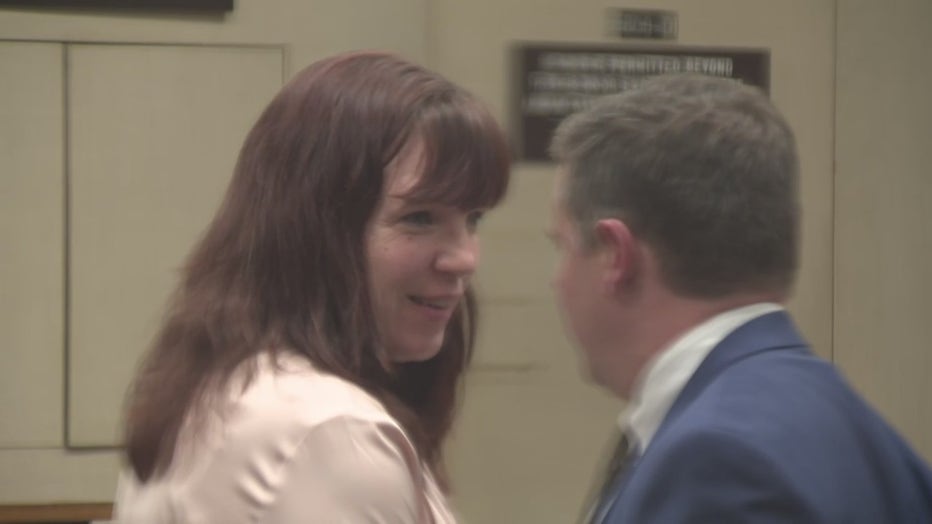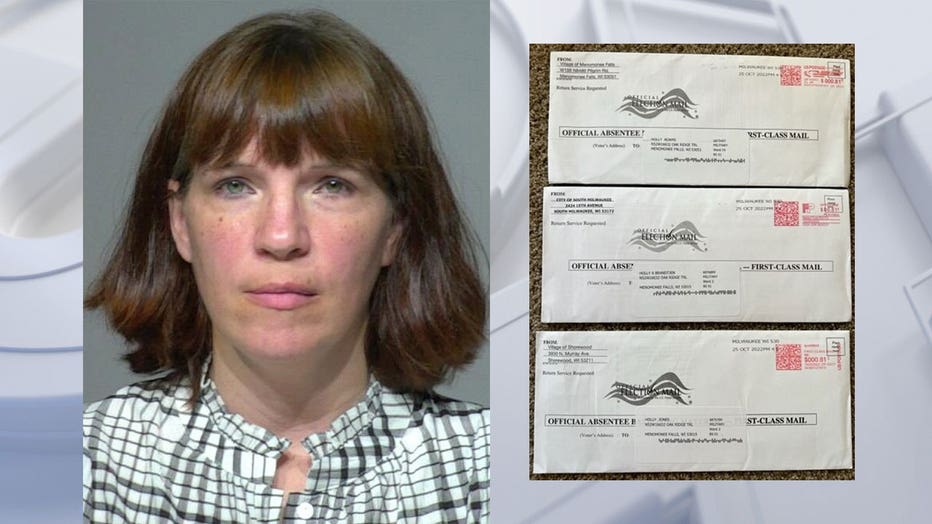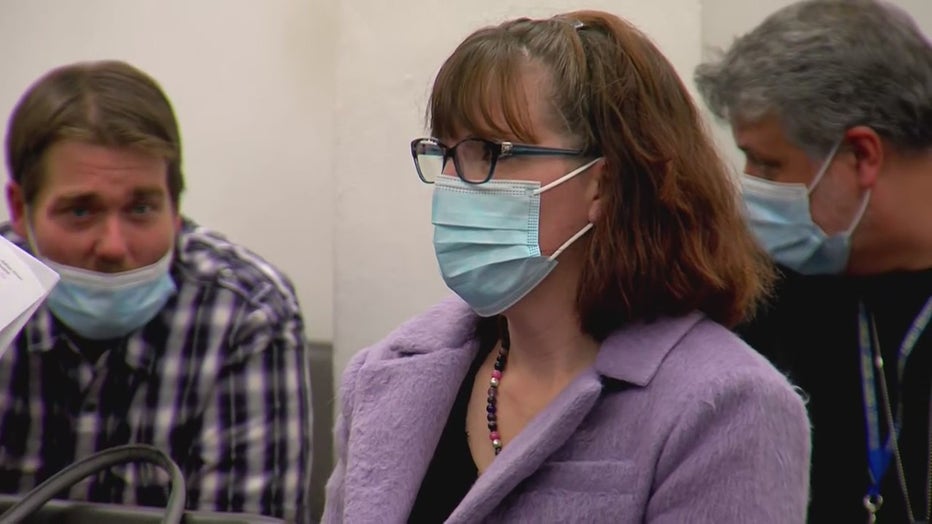Kimberly Zapata ballot fraud case; opening statements, testimony unfold

Kimberly Zapata ballot Fraud trial begins
The trial for Kimberly Zapata, a former Milwaukee election official, began today, March 18. she's accused of ballot fraud that happened in 2022.
MILWAUKEE - Opening statements and the first witness testimony was held on Monday, March 18 in the trial for Kimberly Zapata, the fired Milwaukee Election Commission deputy director accused of illegally requesting military ballots and sending them to the home of State Rep. Janel Brantdjen (R-Menomonee Falls).
Prosecutors charged Zapata in early November 2022 with misconduct in public office and three counts of election fraud for making a false statement to obtain an absentee ballot.

Kimberly Zapata
Prosecutors allege Zapata admitted to ordering military ballots for non-existent people. Clerks sent three ballots to the home of State Rep. Janel Brandtjen (R-Menomonee Falls). Prosecutors said her motive was to show vulnerabilities in the election system.
First testimony of trial
Late on Monday, after opening statements, prosecutors called a clerk to the witness stand. That witness explained how she processes a military ballot.
Zapata's defense attorney called Zapata a whistleblower. But the state argues she used her authority to commit fraud.
"As the deputy director, Ms Zapata was entrusted with safeguarding our elections. She responded to that trust by committing fraud," said Matthew Westphal, prosecutor.
"What she did was to show a gap between a fair and secure election system. A gap in security that nobody was talking about," said Dan Adams, defense attorney.
Zapata worked at the Milwaukee Election Commission for seven years. If convicted, she faces up to five years behind bars.
Opening statements

Kimberly Zapata ballot fraud case; opening statements to jury
The opening statements were heard in Milwaukee County court in the trial of Kimberly Zapata on Monday, March 18.
More case details
Milwaukee County prosecutors said Zapata admitted to making up names and ordering military ballots that were then sent to Brandtjen's home in hopes of exposing vulnerabilities with the state's election system.
Brandtjen (R-Menomonee Falls) earlier said she was surprised to receive the three absentee ballots at her Menomonee Falls address. She reported them to the Waukesha County Sheriff's Department. The ballots were for Holly Brandtjen, Holly Jones and Holly Adams – three people who prosecutors said don't exist.

"She had the ballots sent to (Janel Bradtjen) in an attempt to redirect JB's focus away from outrageous conspiracy theories and to something that is actually real," the complaint alleged of Zapata.
The court paperwork said the ballots were mailed by municipal clerks in Menomonee Falls, Shorewood, and South Milwaukee. All three ballots, the complaint said, were "classified as military absentee ballots" and requested via the MyVote website.
Wisconsin law exempts military voters from having to show a photo ID to receive an absentee ballot.
The complaint accused Zapata of creating the fake names and falsely representing they were military voters. The complaint alleged she used her government access to a database to get Brantdjen's address and send the ballots there.
SIGN UP TODAY: Get daily headlines, breaking news emails from FOX6 News
On Oct. 31, the Milwaukee Election Commission's Executive Director Clarie Woodall-Vogg said she sent Zapata "an article regarding an unknown individual fraudulently applying for military absentee ballots," per the complaint.
The complaint states Woodall-Vogg also sent Zapata another message with a "statement that was put out by (Janel Brandtjen) regarding how easy it was to receive military ballots." The complaint said Zapata replied: "She has a point."

Kimberly Zapata
Zapata approached Woodall-Vogg at work on Nov. 1 and the complaint said Zapata admitted she created the fake voters and used fake information to order the ballots be sent to Brandtjen's home, in an effort to show the ease to which this type of fraud could be committed.
FREE DOWNLOAD: Get breaking news alerts in the FOX6 News app for iOS or Android
Investigators questioned Zapata, and the complaint summarizes the alleged motive:
"Zapata did this because she wanted to make a point that there is fraud in existence. She stated that it is not the conspiracy theories out there, but she wanted to bring the actual true fraud out. Zapata stated that she felt overwhelmed due to the threats of violence the Election Commission was receiving, in addition to the constant daily harassment and accusations of lying and hiding things. She stated she wanted the truth to come out so that they could focus on the actual problems."
Wisconsin law allows military voters to request absentee ballots without a photo ID. State elections commission data show those ballots are a small number – roughly 0.3% of total absentee ballots cast in general elections. That percentage has stayed roughly the same in each general election since 2016.

